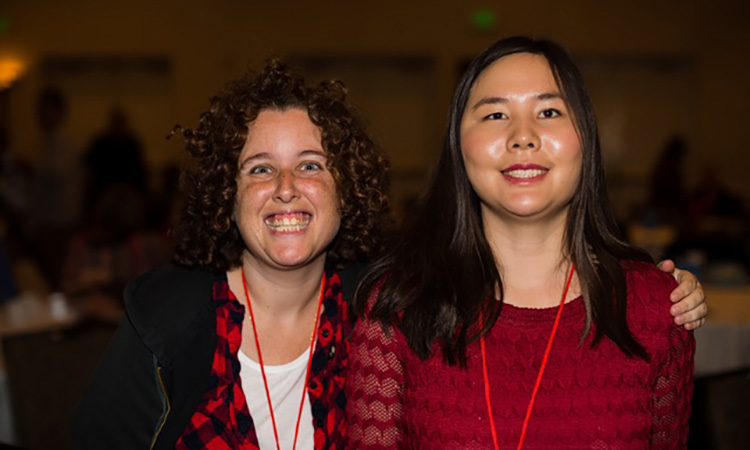Voices

We Want to Be in Control of Our Lives: Christine’s Story

Autistic Self-Advocate
Los Angeles, CA
Sadly, as a person with a developmental disability becomes an adult and special education ends, the lack of quality providers and services becomes more evident. This is a true depiction of my experience when I entered adult services seven years ago. When my mom and I toured various day programs, I was shocked at how these programs were run and that everything was group based and segregated rather than individualized to meet the clients needs. Often times, there were consumers with various diagnoses and abilities clustered in a room together doing the same program. It was very depressing.
When I was preparing to move into a college dorm, I wanted someone to help me with independent living skills. The Regional Center referred me to an agency but I didn’t get to pick the person who worked directly with me. I was a little shocked that the agency did not even think to check with me about what I was looking for in a support person before assigning someone to me. This should be the number one thing that most providers should do. Unfortunately, I could tell that she didn’t have the right personality to work with me. She was passive and I could tell she was not into her job. Not only that, she lacked common sense and good judgment as she drove me around in her car, which had broken seatbelts.
My experience with this provider demonstrates the lack of meaningful oversight that often occurs in regional center services. Providers often hire inexperienced workers who lack training and offer low pay with a lot of staff turnover. In addition, regional centers are often inflexible in customizing services and prevent out of the box thinking when trying to help clients and their families.
This is why I am for self-determination. The new law allows me to have more control in how I want to receive support. I can choose whom I want to hire to support me rather than having to use individuals that are arbitrarily assigned to me by an agency. I also like that the law allows for more room in what types of services to be funded. Most of all though, self-determination presumes competence in people with disabilities and is based on the premise of inclusion.
People with disabilities want to be in control of their lives. The power of choice and control leads to greater life satisfaction. I can say from personal experience that whenever I had choice and control over something important in my life, I felt happier and more satisfied. Having self-determination within regional centers will lead to happier outcomes for people of varying abilities. It restores the true function of regional centers by effectively serving consumers and their families.
Adapted version from original blog post “Why Self Determination Is Important for Individuals with Developmental Disabilities,” 2017


 Sergio Aguilar-Gaxiola, MD, PhD
Sergio Aguilar-Gaxiola, MD, PhD